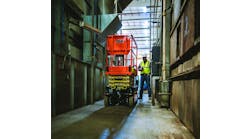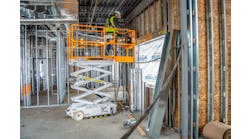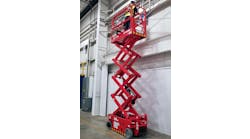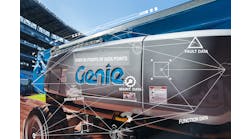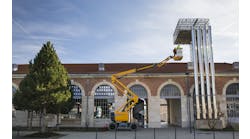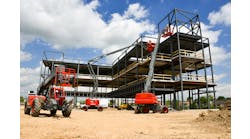During the consolidation era of the late 1990s and early 2000s, the popular wisdom was that the age of the regional rental company had passed and that the rental market would be dominated by nationals, with independents still a factor on the local level. The primary reason many believed the regional company could not compete was its inability to match the nationals' buying power and ability to raise capital. Many regional rental companies did disappear during that time, most acquired by national companies. Some, however, are still around, and the pressures they face are not insignificant. While they are able to acquire enough equipment to merit good pricing from suppliers, they usually can't match the deals the nationals can get.
Consolidation of the customer base has affected regional companies as well. An increasing number of contractors on larger jobs come from out of state. If those contractors have accounts with one or more national companies and they are planning a job in a different state, it is easier for them to rent from the national company they already have an account with, without investigating whether or not they necessarily offer the best service in that area.
That acknowledged, there are still regional rental companies around, and some smaller companies have expanded to fill the void left by regional players that were acquired. One growing regional company is profiled in this issue — Equipment Depot, based in Waco, Texas, with 12 branches in that huge state, which certainly can be described as a region. If you don't agree, try driving across it east to west in one day!
Equipment Depot is not a typical rental company. First and foremost it is an industrial forklift company, and that is its core competency. But being big enough to do close to $40 million annually in rental, much of which comes from the rental of scissors, booms, telehandlers and earthmoving equipment, Equipment Depot is certainly a competitive factor among rental companies in the Texas marketplace, and may soon be expanding beyond the state's borders.
Equipment Depot is also very much a dealer, a mentality that influences its rental style. It primarily rents equipment if it is a dealer for that line, and in the case of some lines where dealerships lack exclusivity, the company still approaches that business like a dealer — offering warranty, training service techs to the highest degree, having more than 20 service techs per branch and only renting equipment for which it can offer the highest level of service.
Equipment Depot is big enough to have a strong infrastructure when it comes to service and to cover a wide geographic area. Yet the company is small enough to still offer the kind of personal customized service that is the strength of the small independent. It's small enough that each branch can make significant decisions about what inventory it will offer, because each market is different. It's small enough to be flexible to make quick decisions when needed, and able to go with what is likely to work best in a particular city, rather than be bound to a “cookie-cutter” uniformity. And at the same time, the company is large enough and well capitalized enough to try different equipment in different cities if there is a logical basis for the investment.
The business model of Equipment Depot would seem to be Exhibit A in making the case that a regional rental company can continue to be successful. It helps to be able to offer service beyond the norm of what has become accepted in this industry. It helps to train employees so that they feel the company is investing in their growth and advancement. It helps to be able to maintain a family atmosphere that values creative thinking and willingness to experiment and take risks. And it certainly helps to have a parent company that says, “Go ahead; do things your own way, as long as the results are strong.”
But not all regional companies can be expected to follow Equipment Depot's unique model. The future fate of the regional rental company may have to be analyzed on a case-by-case basis. Some models will work and some will not. And while they compete with national companies, they also benefit from them. Equipment Depot's CEO Don Moes, for example, is quick to give credit to national rental companies for raising the awareness of rental, raising the performance bar and increasing professionalism. Time will tell which regional companies can perform at a high enough level to succeed in a cyclical market.
